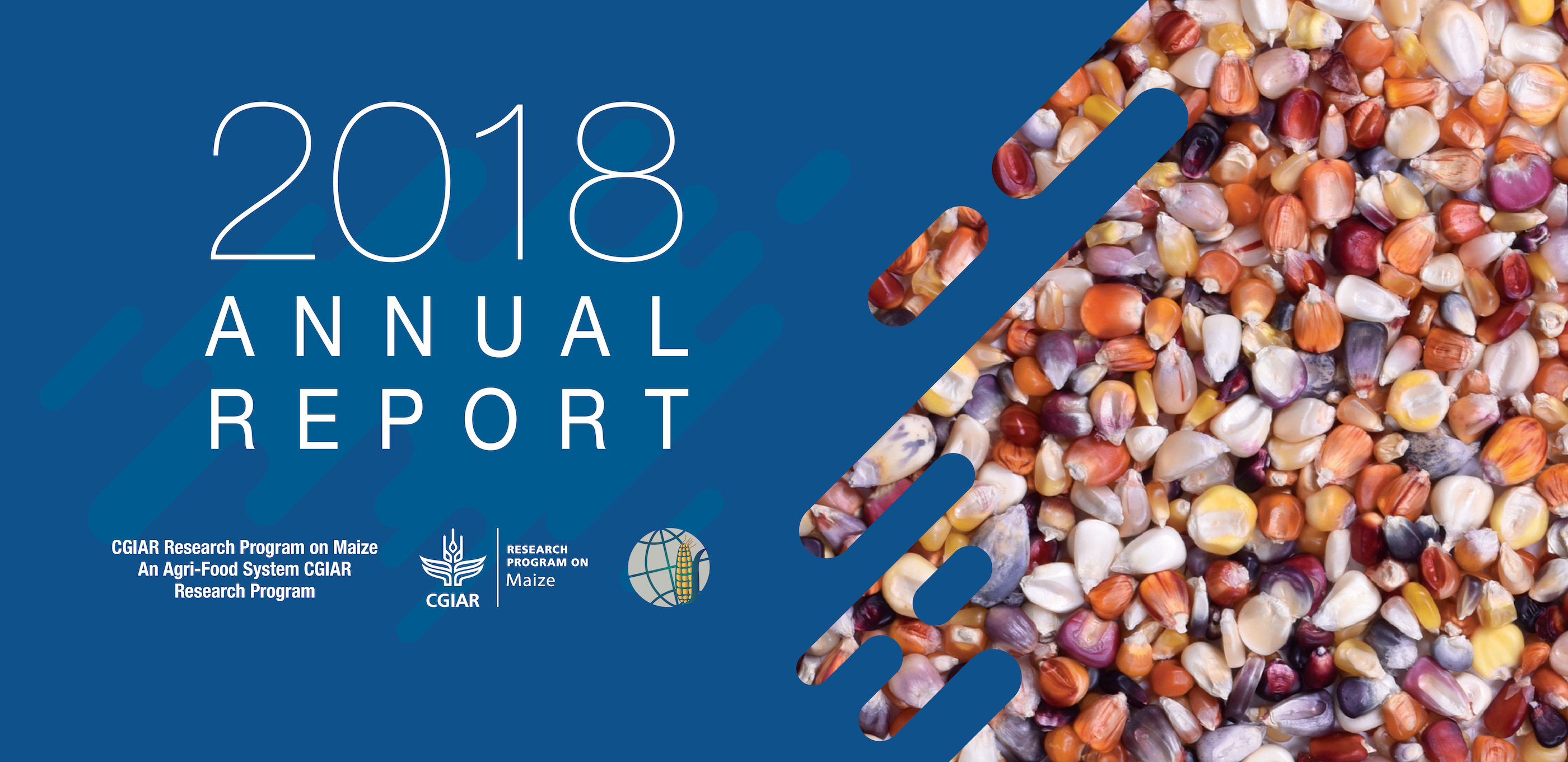The newly released CGIAR Research Program on Maize (MAIZE) Annual Report 2018 highlights significant development outcomes and impacts through varietal release, scale-up, delivery and adoption of CIMMYT- and IITA-derived climate-resilient and nutritionally enriched maize varieties.
In 2018, national partners released 81 unique CGIAR-derived maize varieties across Africa, Asia and Latin America. Of these varieties 14 were hybrid combinations, showing that regional and multinational seed companies use MAIZE’s improved germplasm to develop and release improved maize hybrids. 20 of the released varieties are nutritionally enriched — provitamin A, quality protein maize (QPM), high-zinc — the result of the MAIZE partnership with the CGIAR Research Program on Agriculture for Nutrition and Health (A4NH; HarvestPlus).
MAIZE and partners have made great strides in 2018 combatting major pest and disease challenges such as maize lethal necrosis (MLN) and the devastating fall armyworm. MAIZE researchers found that sustainable intensification practices in combination with stress-tolerant maize led to higher yield gains during the El Niño year in Southern Africa. Meanwhile, a crop growth modelling study quantified the impact of climate change on maize and found combined drought and heat stress tolerance has a benefit at least twice that of either one alone.
